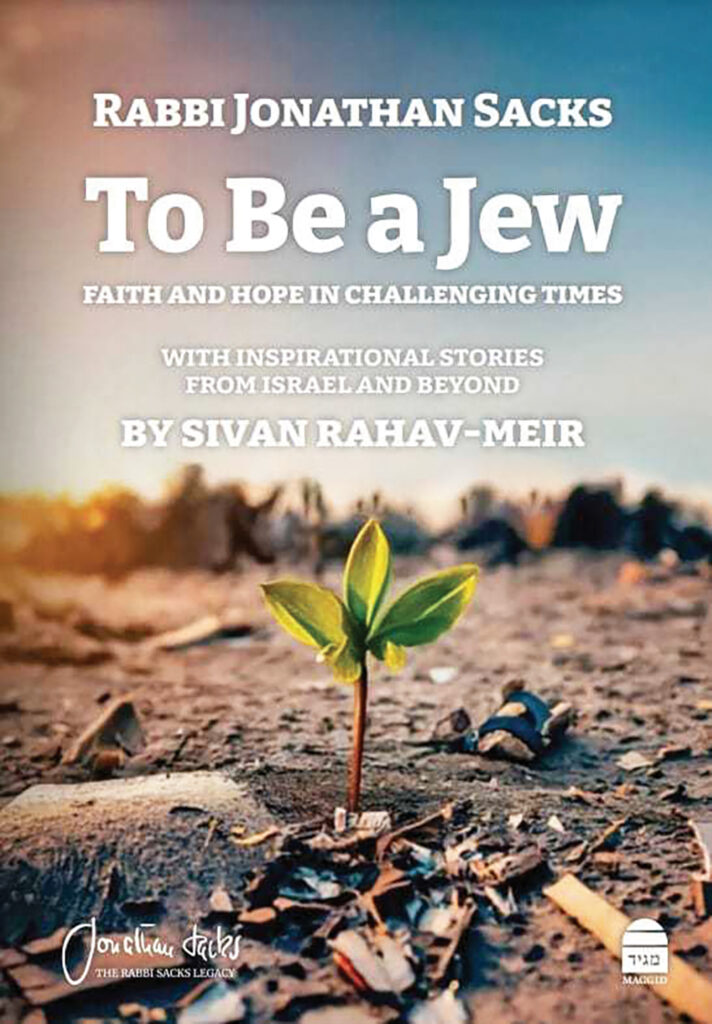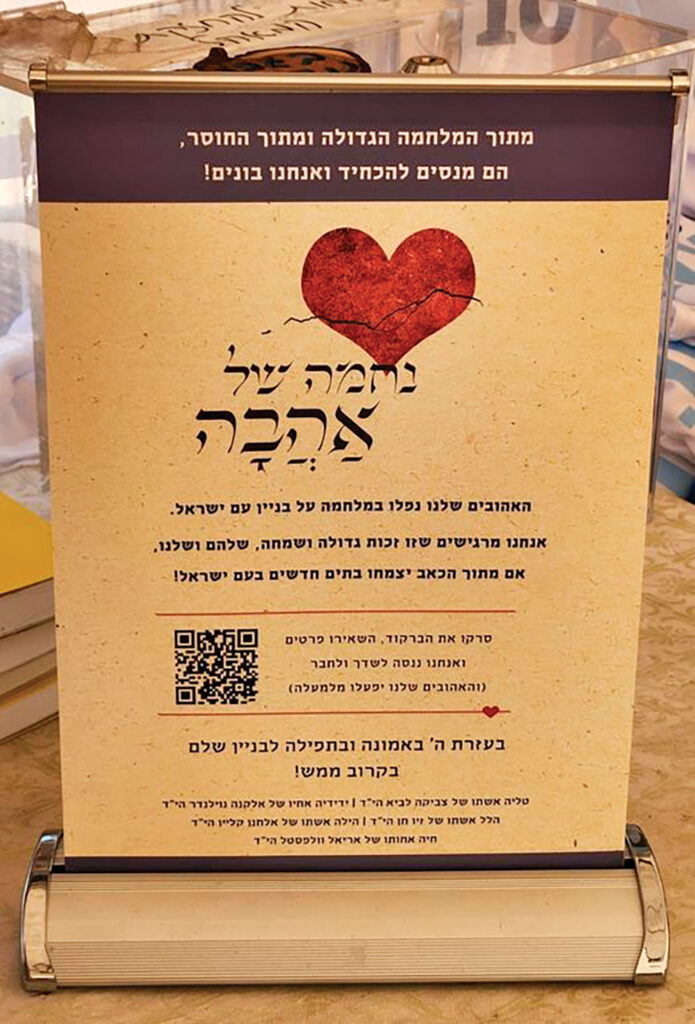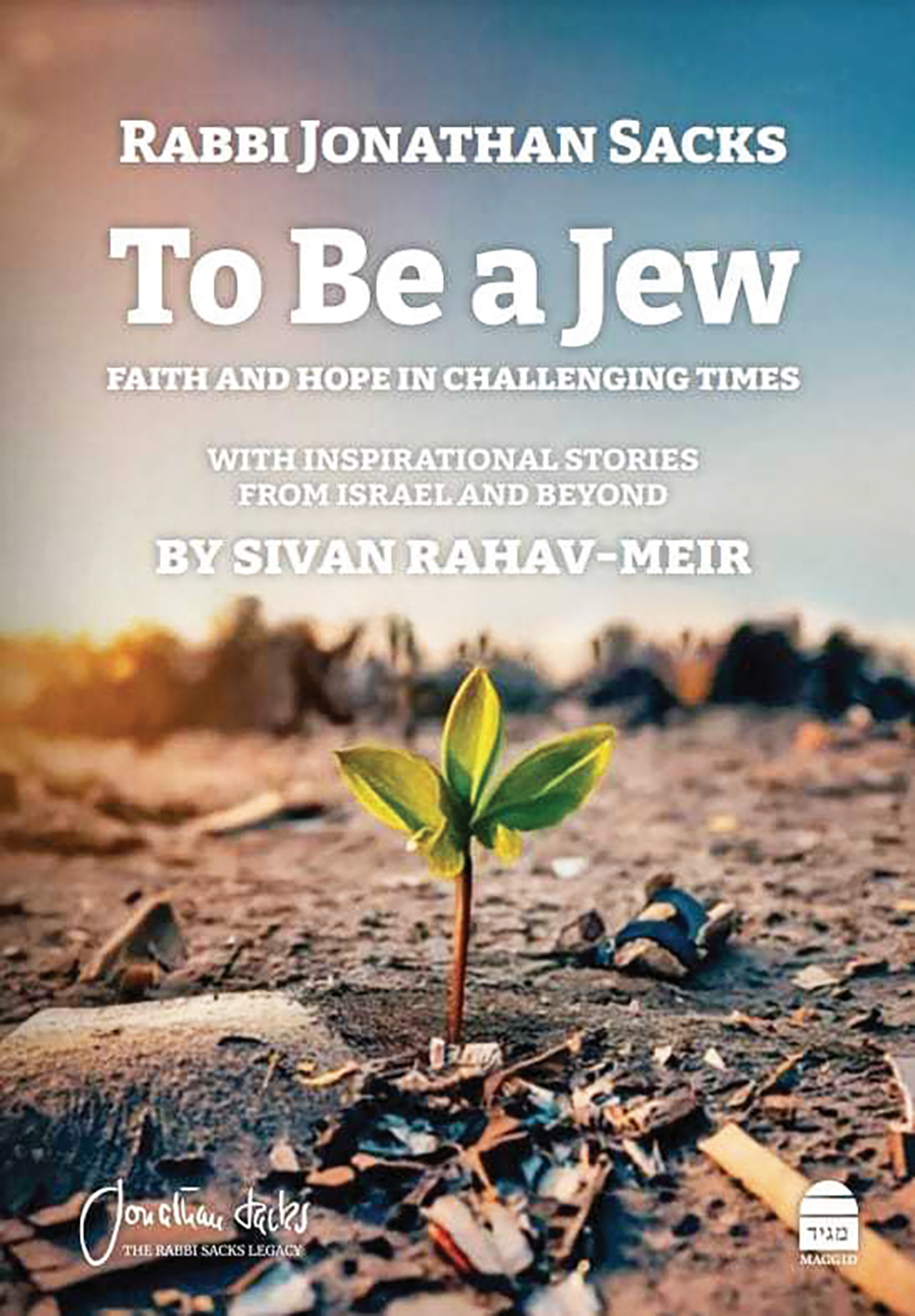
To Be a Jew
I’m thrilled to announce the launch of our latest project, “To Be a Jew,” a deeply meaningful booklet that brings together selected passages from the profound teachings of Rabbi Jonathan Sacks, zt”l, and powerful stories I’ve reported since the onset of the war in Gaza. The original Hebrew edition, “Lerapeh et Halev” (To Heal the Heart), published just a few months ago, struck a chord with readers from all walks of life, sparking requests for an English version. Today, I am proud to share that, thanks to the generosity of the Rosen Family, this important work is now available for free download at sivanrahavmeir.com. For those interested in spreading this message further, print copies can be ordered in large quantities by contacting us at [email protected].
Caution: Prosperity Ahead
Every year, around Parashat Eikev, I am reminded of the time I stopped at a food stand in Manhattan and ordered a small cup of freshly-squeezed orange juice. The owner handed me an enormous cup of juice. “I asked for a small,” I said, but then he pointed out two cups even bigger than that one and said, “What I gave you was a small. Look, here are sizes medium-large and large!” It was then that I discovered that the cup that was considered “large” in Israel was “small” in the United States. I have no doubt that in a few more years, our “large” here in Israel will also be considered “small”!
Sefer Devarim describes the great danger of living in a prosperous society that offers people everything they desire and in “large” amounts. It’s challenging to live in poverty— but it’s no less of a challenge to live in wealth. It’s painful to be hungry—but it’s not easy to be satiated, either. And today that challenge is more acute than ever.

Moshe Rabbeinu is worried that the “good life” might cause people to forget both their past and the direction in which they are meant to be heading. Here is his powerful warning from this week’s parsha: “When you have eaten your fill, and have built fine houses to live in, and your herds and flocks have multiplied, and your silver and gold have increased, and everything you own has prospered, beware lest your heart grow haughty and you forget the Lord your God, who freed you from the land of Egypt, the house of bondage…and you say to yourselves, ‘My own power and the might of my own hand have won this wealth for me.’”
For thousands of years, Jews struggled with poverty and failure. Today, they face the challenge of wealth and success. It is important that we continue to hold onto our values even in comfortable circumstances, even when grasping that massive cup of orange juice.
Building New Homes
A 37-year-old woman wrote to me that since last week, after the fast of Tisha B’Av, she has received no less than four suggestions from acquaintances for potential marriage partners. “When I received the first suggestion, I thought it was nice that people were thinking of me. After the second one, I was sure that someone had publicized an announcement that I was seeking a shidduch. But after getting more calls, I realized that something special is happening here, and it’s not just about me.”
There are, in fact, various new initiatives underway to help singles find their lifetime partners. One was started by the Libmans. After tragically losing their son Elyakim Libman, who served as a guard at the Nova Festival, they decided to launch a project called “Build a Home in Elyakim’s Memory.” Elyakim was not privileged to build a home and start a family of his own; the project’s sponsors are working to see as many new families as possible created in his name.
The woman who wrote to me explained how the initiative had warmed her heart. “It shows that people care, that they are investing time and thought into my future, that they haven’t given up on me.”
Each individual, new home and family that is built within the nation of Israel is a miniature Beit Hamikdash where the Shechinah resides, and it is these efforts that will ultimately rebuild the Beit Hamikdash.

How to Use All Your Strength
I believe the following story holds particular relevance for our time:
A little boy was playing next to his father, who was sitting on a bench in the garden. The boy tried to pick up a huge rock, but it was too heavy. He kept trying and trying with all his might but it was no use; he just couldn’t pick up the rock.
His father remarked: “I see that you’re not using all your strength.”
The boy responded: “But I am using all my strength—I don’t know what else I can do.”
His father said: “But you haven’t asked for my help. That, too, is a form of strength. I’ve been sitting here all this time and not once did you think of asking for my assistance. This shows me that you aren’t using all your strength.”
May we know how to utilize all our strength, recognize that asking for help is also a form of strength, and learn how to give strength to others.
Translated by Yehoshua Siskin, Janine Muller Sherr
Want to read more by Sivan Rahav Meir? Google The Daily Thought or visit sivanrahavmeir.com
Sivan Rahav Meir is a primetime news anchor on television and radio. Her “Daily Thought,” translated into 17 languages, has hundreds of thousands of followers on social media. She has a weekly podcast on Tablet, called “Sivan Says,” and has published several books In Hebrew and English. Sivan was chosen by Globes newspaper as Israel’s most popular female media figure and by the Jerusalem Post as one of the 50 most influential Jews worldwide. She lives in Jerusalem with her husband Yedidya and their five children.











